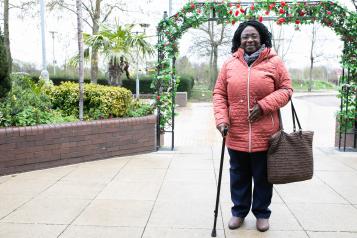Winter Health Advice from NHS England

Urgent medical issue, or unsure what to do? Use NHS 111.
If you or a child over the age of 5 years has an urgent medical issue, or you’re unsure if you need to go to A&E, use 111 online by visiting 111.nhs.uk. You will answer questions about your main symptom, find out when and where to get help, and if you need it, a clinician will call you back.
You can also call 111 to speak to a fully trained advisor, 24 hours a day. If necessary, 111 advisors can connect callers to a nurse, emergency dentist or a GP and they can arrange face-to-face appointments. Should you need emergency care, they can book an arrival time at a local A&E department for you. This might mean you spend less time in A&E, and it helps with social distancing.
Advice from a pharmacist
Visiting your local pharmacy can be the fastest way to get advice if you have a minor health problem. Pharmacists are highly trained medical professionals who can help with a wide range of issues – from stomach bugs and skin rashes to emergency contraception, information about condoms, and minor injuries like strains and sprains. Find a pharmacy near you and their opening times at nhs.uk/find-a-pharmacy.
Getting a repeat prescription
It’s a good idea to order repeat prescriptions from your GP and collect them from your pharmacist in good time, especially before the festive bank holidays. You can find out how to get an emergency prescription and also find a pharmacy open near you over Christmas and New Year at nhs.uk/find-a-pharmacy
Seeing a GP or a practice nurse
Most GP surgeries now offer online and video consultations. This can save you time waiting for a face-to-face appointment and means you do not need to go into a GP surgery.
If you need to contact a GP or practice nurse, please visit your GP surgery’s online service first. If you are not able to do that, please telephone the surgery and they will help you. Most matters can be managed either online or with a telephone call from the doctor, nurse or pharmacist. If you do need to be seen face to face, the doctor, nurse of pharmacist will be happy to invite you in for an appointment.
If you contact your GP surgery outside of normal surgery hours, a recorded message should tell you who to contact. It may be possible to arrange an evening or weekend appointment at a nearby practice.
Some GP surgeries may have different opening hours on Christmas Eve, New Year’s Eve and during the bank holidays, but arrangements are in place for residents to get appointments locally if needed. Check your surgery’s opening hours online or over the phone if you think you need an appointment, or contact 111.
Getting help in an emergency
If you have a serious medical emergency, like a heart attack or stroke, call 999 or go to A&E. Accident and emergency departments are for seriously ill people with life-threatening conditions and will be very busy over the Christmas and New Year period.
We would encourage people to use alternative health services if the issue isn’t an emergency.
Getting your flu jab and Covid-19 booster vaccination
Flu vaccination is available every year free on the NHS to help protect adults and children at risk of flu and its complications. If you’re eligible, make sure you have your flu jab as soon as possible. Find out more about who is eligible for the flu vaccine.
Covid-19 booster vaccinations are also available for everyone over the age of 18 in England, three months after your second dose. Protect yourself and your loved ones, get your flu and booster vaccines. Book you Covid-19 vaccine now.
Managing health at home
Find information on treating minor health conditions at home, including managing a hangover, on nhs.uk.
For advice on managing children’s health issues, visit Healthier Together. You will find a range of advice for parents about children experiencing issues like conjunctivitis, headaches, constipation and eczema.


